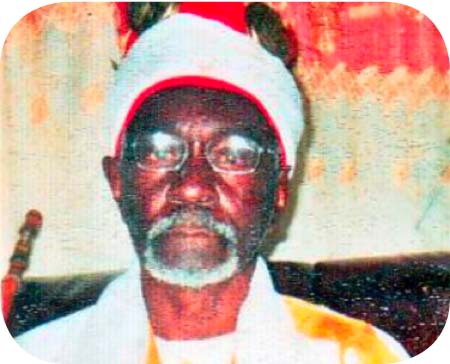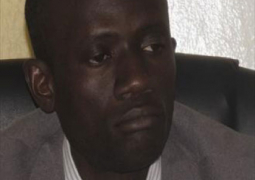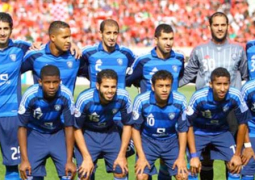
Under cross-examination, the witness, Seedy Gibba, told the court that he is 36 years old and a Muslim.
“As a Muslim you are enjoined by God to perform daily prayers,” counsel said. “Yes,” replied PW2.
“Do you perform your five daily prayers?” “Yes, if am not travelling, I perform them on time.”
“Do you perform Zuhur prayer on time as prescribed by the religion?” “Yes, if it did not find me in a vehicle travelling.”
“So it is correct that sometimes you do not pray on time.” “Yes,” replied PW2.
“Have you ever been arrested for not praying on time?” “No,” said PW2.
“Where you in the country for the last Edul Adha?” “Yes,” replied PW2.
“On which day did you pray?” “I prayed on Saturday,” said PW2.
“Are you aware that others prayed on Sunday?” “I am not aware,” said PW2.
“I am putting it to you that there are others who prayed on Sunday.”“The only thing I know is that I prayed on Saturday,” PW2 replied.
“Do you know that even Senegal prayed on Sunday?” “I know of The Gambia and not Senegal,” said PW2.
“Is there any compulsion in religion, be it Christianity or Islam?”
“If you are a Muslim you can be forced by your family to do what Islam says,” PW2 responded.
“Are you versed in the Holy Quran?” “No,” said PW2.“Do you know that you are enjoined by God to learn the Quran?” “Yes,” PW2 responded.
“Have you been punished by anybody for not studying the Quran?” “When I was a child my father used to punish me,” said PW2.
“At the age of 36 now, have you heard from anybody in the whole world that someone has been arrested or charged for not praying the 5 daily prayers?” “No,” said PW2.
“I am putting it to you that it is not the business of the police, because religion is personal because we pray to God,” said counsel. “That is true,” was the response of the witness.
“It is correct that fasting is a religious obligation sanctioned by God to all Muslims.” “Yes,” said PW2.
“Do you know that Muslims fast one month every year?” “Yes, it is a pillar of Islam,” said PW2.
“In 36 years have you ever heard of the police arresting anybody for not fasting?” “No,” said PW2.
“Do you know why we pray daily?” “God asks us to pray,” said PW2.
“You agree with me that all Muslims who bow their heads do so to God as a religious duty.” “Yes,” PW2 replied
“Are you surprised that the accused persons are arrested, charged and brought to court for praying to God?” “Yes,” said PW2.
“Do you know if there is any sanction for not praying at all?” “It is God who knows that,” said PW2.
“Did God say that those who refuse to follow them should be arrested?” “I don’t know,” said PW2.
“As far as you know Islam, is there anything in the Quran and the Sunnah of the Prophet (SAW) which says that anybody who did not pray should be arrested?” “I don’t know,” said PW2.
“Do you know the 1 accused person?” “Yes,” said PW2.
“What is his status?” “I know him as an elderly man,” said PW2.
“So you don’t know that he is the caliph general of the sheriffs in The Gambia?” “I did not know,” said PW2.
“Is it correct that you know that he is well versed and knowledgeable in Islam? “Yes I know,” said PW2.
“Do you know why he prayed on 29th July 2014?” “I don’t know,” said PW2.
“But you know that when he prayed on 29th July 2014 he was praying to God?” “As Muslims we all pray to God,” said PW2.
“Have you ever been arrested for praying to God?” “No,” said PW2.
“Will you agree with me that the accused persons have not committed any offence for praying to God on 29 July 2014?” “I don’t know,” PW2 replied.
Meanwhile, the third prosecution witness, Seedy Saidykhan, a police officer at Bwiam Police Station, told the court that he recognized the two accused persons.
He said on the day in question he was posted at the Kanfenda checkpoint when he received a call from his command to go to Sherriff Kunda and invite the Alkalo and Imam to the station, in connection with the Koriteh prayers.
On arrival at the village, he asked for the imam but was told the imam was sick and he proceeded to see the alkalo.
He told the alkalo he was sent by his command, and asked if the village prayed on Tuesday, and the alkalo said, “Yes”.
He asked the alkalo who led the prayers. It was the 1st accused person, the alkalo said.
The police officer told the court he then escorted the alkalo to the 1st accused person’s compound, where the caliph admitted prayed on Tuesday and was the one who led the prayers.
He escorted the alkalo to the police station and they later called the 1st accused and invited him to the station, where he gave his statement.
Read Other Articles In Article (Archive)

Ministry of Youth hands over farm produce to national disaster agency
May 11, 2012, 1:22 PM
The Battle of Bayt al-Muqaddas (Jerusalem)
May 11, 2012, 1:43 PM


